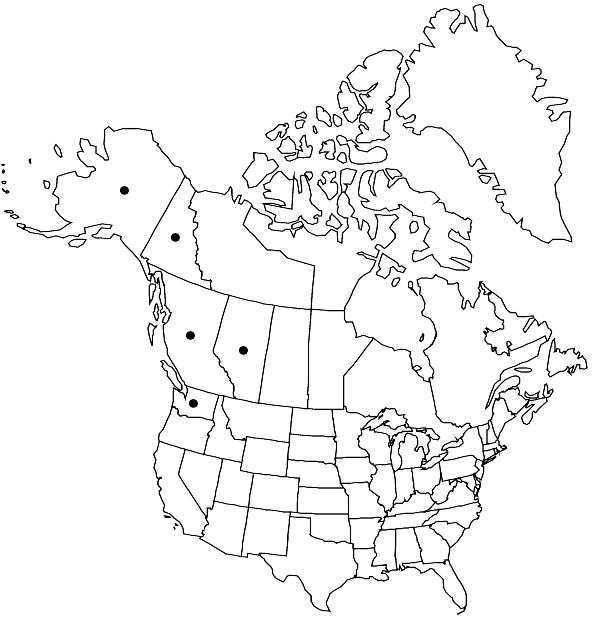Encalypta brevipes
Bot. Mater. Otd. Sporov. Rast. Bot. Inst. Komarova Akad. Nauk S.S.S.R. 7: 227. 1951,.
Stems 10–14 m, central strand absent. Leaves broadly oblong to elliptic or spathulate, 2–4 mm, apices rounded, apiculate to hair-pointed; margins plane; costa excurrent, awns shorter than leaf lamina, hyaline, smooth, stout; laminal cells 10–22 µm; basal-cells rectangular, 60–90 µm, walls thickened, adaxial and abaxial surfaces smooth; basal marginal cells distinctly differentiated in 10–20 rows. Specialized asexual reproduction absent. Seta 1–3 mm, red to yellowish red, smooth. Capsule exserted or sometimes just emergent, erect, cylindric, 1–3 mm, smooth, reddish yellow with distinctive red rim, gymnostomous; exothecial cells rectangular, to 85 µm, walls thickened; peristome absent; operculum 0.5–0.8 mm. Calyptra 2–5 mm, fringed at base, smooth to weakly papillose. Spores 30–50 µm, warty, brown.
Habitat: Scattered, on basic soils intermixed with other species in the northwestern area of the flora
Distribution

Alta., B.C., Yukon, Alaska, Wash., Europe, c, n Asia, Atlantic Islands (Iceland)
Discussion
When sporophytes are present in Encalypta brevipes, the very short setae extending the capsules above the leaf awns are distinctive. The rather broadly elliptic leaves, awn, and gymnostomous capsules also help to distinguish it. This species is frequently reported growing among other species of the genus, but is consistently smaller than those associates.
Selected References
None.